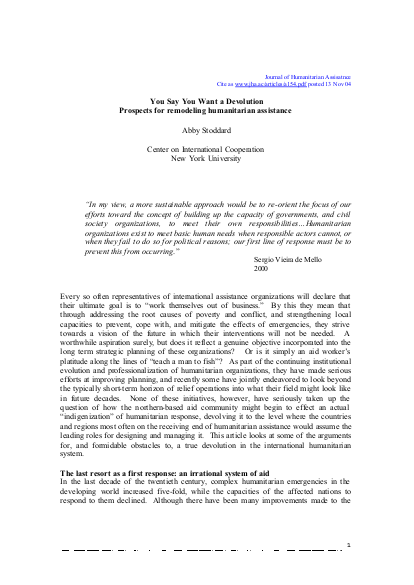
Every so often representatives of international assistance organizations will declare that their ultimate goal is to “work themselves out of business.” By this they mean that through addressing the root causes of poverty and conflict, and strengthening local capacities to prevent, cope with, and mitigate the effects of emergencies, they strive towards a vision of the future in which their interventions will not be needed. A worthwhile aspiration surely, but does it reflect a genuine objective incorporated into the long term strategic planning of these organizations? Or is it simply an aid worker’s platitude along the lines of “teach a man to fish”? As part of the continuing institutional evolution and professionalization of humanitarian organizations, they have made serious efforts at improving planning, and recently some have jointly endeavored to look beyond the typically short-term horizon of relief operations into what their field might look like in future decades. None of these initiatives, however, have seriously taken up the question of how the northern-based aid community might begin to effect an actual “indigenization” of humanitarian response, devolving it to the level where the countries and regions most often on the receiving end of humanitarian assistance would assume the leading roles for designing and managing it. This article looks at some of the arguments for, and formidable obstacles to, a true devolution in the international humanitarian system.